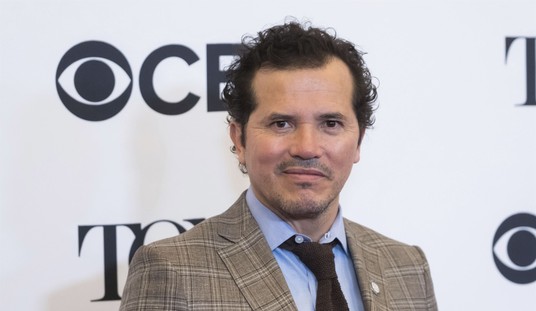To hear some investors tell it, “manipulation in the gold market” is a scandal on the scale of Bernard Madoff’s Ponzi scheme, perhaps even greater.
Bankers and exchange officials insist, just as vigorously, that that is nonsense. The accusations “lack credible evidence or even a sensible theory,” the managing director of the CME Group, Thomas LaSala, recently told a hearing of the Commodity Futures Trading Commission, which regulates positions in precious metals.
A leading advocate of the manipulation charges, the chairman of the Gold Anti-Trust Action Committee, William J. Murphy III, was buoyed over the weekend by a New York Post dispatch reporting on a London-based trader who has reportedly claimed that London-based JPMorgan Chase traders bragged to him about how they make money by manipulating the metals markets. A JPMorgan spokesman told the Post that no one at the company was familiar with the trader, Andrew Maguire, who does not work for JPMorgan Chase.
“I’m having fun today,” Mr. Murphy told me the day the Post article appeared, calling the article “the first mainstream story that gives it a fair shot in 11 years,” and a welcome change from “people calling us tin-foil-hat nuts.”
The fact that people are starting to pay attention is a sign of the increased popularity that investing, or speculating, in gold has attracted amid the initial uncertainty of the economic crisis and the predictions of inflation that have accompanied increased federal spending and low interest rates.
The hedge fund manger famous for making billions by betting against sub-prime mortgages, John Paulson, has reportedly put $250 million of his own money into a fund dedicated to investing in gold. Another prominent hedge fund manager, George Soros, reportedly recently increased his fund’s holdings of an exchange-traded fund that owns gold, to $663 million worth, while, somewhat confusingly, Mr. Soros was also saying publicly that “the ultimate asset bubble is gold.”
Arguments on both sides of the “manipulation” question were aired at a March 25 hearing of the Commodity Futures Trading Commission. Mr. Murphy’s written testimony complained: “JPMorgan Chase and HSBC held more than 95 percent of the gold and precious metals derivatives of all U.S. banks, with a combined notional value of $120 billion. This concentration dwarfs the concentration in the gold and silver futures markets.”
Mr. LaSala, for his part, tried to dispel claims that trading by index funds tracking gold prices had adversely affected prices. “Index funds operating on futures exchanges have no impact on the underlying commodity and have only a transitory and insignificant impact on the prices of futures contracts,” he said in written testimony.
The charges of market “manipulation” extend not only to commercial banks but also to central banks. A post at the financial site Seeking Alpha complained that European central banks were selling gold. And in his book End the Fed, Rep. Ron Paul, the Texas Republican, writes, “the government and central banks have an intense interest in not allowing the gold price to send a no-confidence signal to the world of just how weak the dollar is. Central banks in recent years have been selling constantly, and I’m strongly suspicious that the President’s Working Group on Financial Markets — the ‘Plunge Protection Team’ — participates in the gold market as well to keep the price suppressed.”
Whether that constitutes “manipulation” is another question. The accusation gets thrown around a lot without much definition or explanation of how a global market of this size could be “manipulated” at a profit for an extended period. Traders are supposed to make money for banks, after all, and central bankers and governments can be expected to try to defend their currencies. These are things that anyone who is contemplating speculating in gold might want to consider, along with the prospect that the debt-strapped U.S. government may sell some of the more than $250 billion worth of gold (estimated) that it holds.
I asked Mr. Murphy how, given the rise in the value of an ounce of gold as measured in dollars in recent years — from about $300 an ounce in 2002 to about $1150 today — he could defend his claim that government and big banks were working together to suppress the price. He replied that without the manipulation, gold would be at $2,000, $3,000, or $5,000 an ounce. He also said he is long gold — “every penny,” he said. In other words, if the price goes higher, he makes more money.
One of the traditionally strongest arguments of those who argue in favor of gold as a reliable measure of value is that for hundreds of years the price of an ounce of gold has closely tracked the price of a high-quality men’s suit. I didn’t ask Mr. Murphy how much he pays for his suits, but at $3,000 or $5,000, they had better be woven of golden fleece.
The Commodity Futures Trading Commission hearing was held to consider whether the American government should impose limits on the size of positions in the metals markets. “There is no demonstrable need for these limits,” Mr. LaSala testified. “Federally prescribed position limits imposed on derivative traders in the metals in the U.S. will have one and only one consequence: a loss of business to U.S. companies. Firms large enough to run up against those limits will transfer their positions to the cash market or to markets beyond the reach of the CFTC. As previously noted, this is already happening, solely based on the fear that limits will be imposed.”
Mr. LaSala also said that such limits would exceed the CFTC’s statutory authority, which allows the imposition of such limits only if they are “necessary to diminish, eliminate or prevent” the burdens of “excessive speculation.”
What makes speculation “excessive”? Here the important thing to remember is that an increase in the gold price is really just another description for a decline in the value of a dollar as measured against gold, as the New York Sun pointed out in a memorable series of editorials.
The reason that people are suddenly paying attention to the gold price is the wave of concern that Washington’s spending binge is inconsistent with a sound dollar. One way for the CFTC to curb “excessive speculation” in gold would be to require monetary and fiscal policy aimed at a sound dollar. According to the Constitution, though, those responsibilities rest not with the CFTC but with the Congress.









Join the conversation as a VIP Member